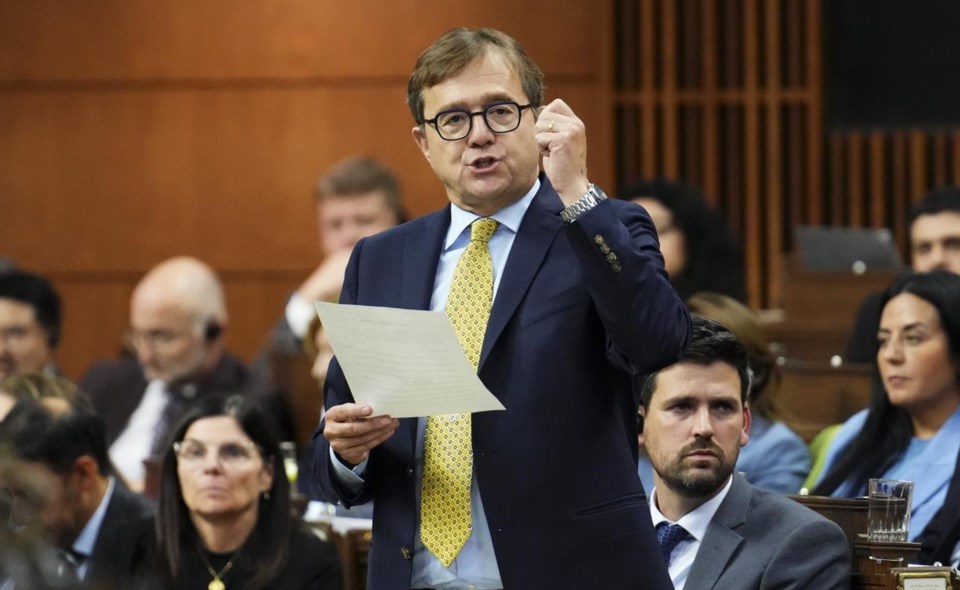OTTAWA — Canada and Romania signed a $3-billion export development deal Tuesday that will see two new nuclear reactors built in the eastern European country, in a move that both governments' energy ministers say will make it harder for Russia to use its energy exports as a weapon.
"This is first and foremost about energy security," said Romanian Energy Minister Sebastian Burduja at a press conference in Ottawa Tuesday.
"Indeed not just for Romania but the whole region."
Burduja said Romania already has an agreement with neighbouring Moldova to share some of the power from the two new Candu reactors, which are expected to go online by 2032.
The country is in talks with Ukraine, Hungary and Austria as well.
The two new reactors will join two existing Candu reactors that have been delivering electricity from a nuclear power centre in the southeastern Romanian town of Cernavoda since 1996 and 2007, respectively.
Burduja said those supply about one-fifth of Romania's electricity, and the two new ones will be of a similar size.
Romania is not reliant on Russia for any of its energy, said Burduja. But if it can help its neighbours become less reliant, too, he said that will help "diminish" the ability of Russian President Vladimir Putin to use its energy exports for geopolitical gain.
"Putin has not hesitated to use energy as a weapon," Burduja said.
Canadian Energy Minister Jonathan Wilkinson said the financing offer is up to $3 billion for Romania's national nuclear operator to buy supplies or services from Canadian companies.
The funds will partly come from Export Development Canada and partly from the Canada Account, which supports export financing deemed to be in Canada's national interest.
Wilkinson linked the deal to a promise Canada made in 2022, following Putin's decision to invade Ukraine: to work with allies in Europe and help them replace Russian sources of energy.
Much of the focus following that promise was on natural gas, which many European countries rely heavily on Russia to obtain.
While Wilkinson asked Canadian suppliers to increase exports of natural gas last year, he has also long noted that Canada has limited capacity to ship gas to Europe — there are no East Coast gas export facilities in Canada, so supplies have to mainly go through the United States.
Canada and Germany also have an agreement to ship Canadian hydrogen, but that industry is still in its infancy in Canada.
Nuclear power, however, has been a Canadian success story, Wilkinson said, with the Candu reactors developed decades ago. He said nuclear power conversations are also being had with other countries, such as Poland.
Ambassadors from Ukraine, Poland, and Finland were among those who attended the signing ceremony for the Canada-Romania nuclear deal Tuesday.
Burduja said that in the 1970s, as many European nations were turning to Russian nuclear technology, Romania made an unexpected choice to go with Canada's version.
That decision, he said, is proving very fortuitous today.
"We're grateful that in the '70s Romania took this decision, because otherwise we would probably now have Russian-based nuclear power plants which would be tremendously complicated in the current context," he said.
This report by The Canadian Press was first published Sept. 19, 2023.
Mia Rabson, The Canadian Press




